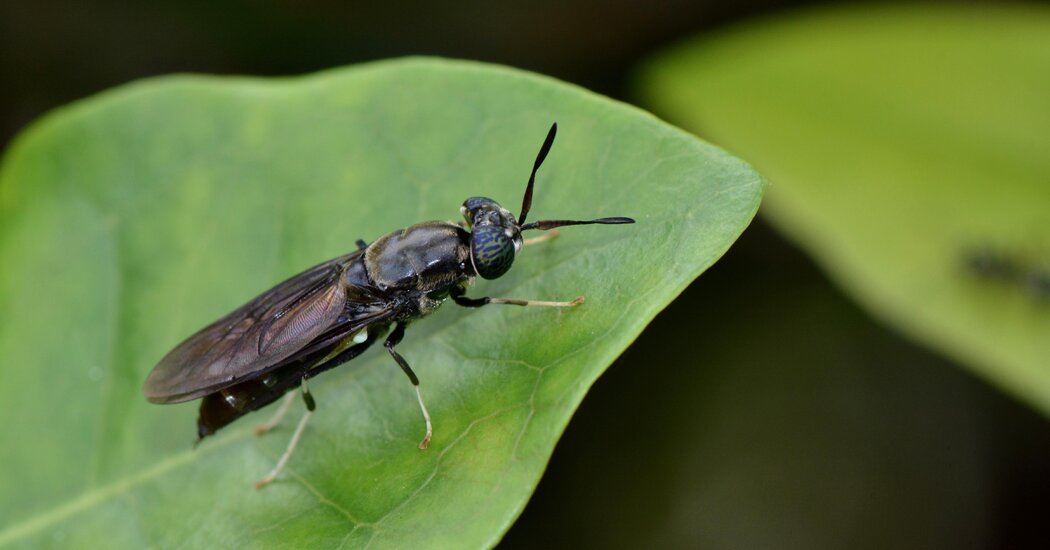

When insects molt, their exuviae contain chitin, a hard polymer that also makes up the shells of crustaceans like shrimp. Microbes, such as the bacteria Bacilli, help plants break down chitin into usable forms. And when insect exoskeletons decompose, they spur the growth of Bacilli and other microbes that are already in the soil.
The researchers focused on exuviae and frass from crickets, mealworms and black soldier flies, said Katherine Barragán-Fonseca, a doctoral student at Wageningen University & Research and an author of the paper.
While the new paper proposes how this circular system might work in theory, the researchers have begun to run experiments in the lab and in the field to determine how it might work in practice. “This is very exciting, but how much poop do I need?” Dr. Ngumbi said, as an example.
After experimenting with different ratios of frass and exuviae from different insects, Ms. Barragán-Fonseca finalized a powdered mixture. She then conducted experiments in which she mixed a few grams of it into the soil before planting mustard. She said she found the mixture could increase plant reproduction by increasing the number of flowers, attracting even more pollinators. These results are unpublished.
“It’s great to see the power that these insects have,” Ms. Barragán-Fonseca said. “Trash for someone can be a treasure for other purposes.”
Insect farming is a growing industry, meaning more insect waste will be produced. This waste used to be discarded, but some companies are beginning to sell it as fertilizer, Dr. Dicke said. Though one insect’s frass may seem negligibly small, it balloons on an industrial scale; a mealworm farmer in Nebraska produces approximately two pounds of frass for every pound of mealworms.
Recycling this waste would make insect farming — which is already more efficient than farming larger livestock such as cows and pigs — even more sustainable. “We’re dealing with climate change, which brings a lot of stressors,” Dr. Ngumbi said. “Anything to boost plant productivity is always a plus.”
24World Media does not take any responsibility of the information you see on this page. The content this page contains is from independent third-party content provider. If you have any concerns regarding the content, please free to write us here: contact@24worldmedia.com

Common Mistakes When Using Athletic Field Tarps

High-Performance Diesel Truck Upgrades You Should Consider

Warehouse Optimization Tips To Improve Performance

Fire Hazards in Daily Life: The Most Common Ignition Sources

Yellowstone’s Wolves: A Debate Over Their Role in the Park’s Ecosystem

Earth Day 2024: A Look at 3 Places Adapting Quickly to Fight Climate Change

Millions of Girls in Africa Will Miss HPV Shots After Merck Production Problem

This Lava Tube in Saudi Arabia Has Been a Human Refuge for 7,000 Years

Four Wild Ways to Save the Koala (That Just Might Work)

National Academy Asks Court to Strip Sackler Name From Endowment

Ways Industrial Copper Helps Energy Production

The Ins and Out of Industrial Conveyor Belts